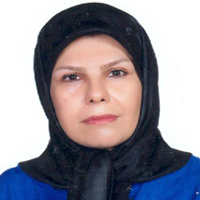فهرست مطالب مشترک دکتر اعظم شیرین آبادی فراهانی و دکتر مریم رسولی
-
BackgroundSpiritual intelligence training, as one dimension of comprehensive care and a means of communicating with a higher power (God), can increase mothers' hope and self-transcendence.AimThis study aimed to determine the impact of spiritual intelligence training on hope and selftranscendence in the mothers of premature neonates hospitalized in the ICU of Fatemieh Hospital, Hamadan.MethodThis randomized clinical trial study included 80 mothers with premature neonates hospitalized in the neonatal intensive care unit in Iran in 2019. The permutated block method was used to randomly divide the eligible participants into intervention and control groups. Weekly training sessions were held in a hybrid of virtual and face-to-face formats for eight 90-minute sessions for the intervention group, while the control group did not receive any education. The maternal demographic and neonatal clinical characteristics form, the Hope Scale of Mothers with Premature Neonates, and the Self-Transcendence Scale were used for data gathering.ResultsThe mean ages of the participants in the intervention and control groups were 30.18±3.76 and 29.38±1.52 years, respectively, and about 45.2% of the neonates were firstborn. The results of repeated-measures ANOVA showed that after spiritual intelligence training, the mean scores of selftranscendence (51.42±1.81) and hope (160.10±7.75) significantly increased in the intervention group (P<0.001). Implications for Practice: It is possible to ensure that mothers provide quality and comprehensive care, allowing them to better perform the parent role, using mechanisms that can increase their hope and self-transcendence.Keywords: Hope, Mother, Neonatal Intensive Care Unit, Self-transcendence, Spiritual Intelligence}
-
BackgroundThe scoring systems evaluate neonatal outcomes based on perinatal factors in the Neonatal Intense Course Unit (NICU).AimThis study aimed to predict mortality risk in preterm neonates for the first time, using the Clinical Risk Index for Babies (CRIB II).MethodThis cross-sectional, descriptive-analytical, longitudinal study was conducted on 344 preterm neonates with the gestational age of 23-32 weeks and birth weight of 500-1500 g in a referral center in Tehran, Iran, from winter 2016 to spring 2017. Some neonatal variables were completed within the first 12 h of life, and the final scores were calculated based on CRIB II. Then, the correlation of these variables with mortality outcome was evaluated using logistic regression. Sensitivity, specificity, and positive and negative values were also calculated via SPSS software (version 23).ResultsAccording to the results, 253 (73.57%) neonates, including 122 girls (48%), survived in the first 24 h after birth. The total CRIB II score in the surviving neonates was 6.1±2.6. The area under the receiver operating characteristic curve was estimated at 0.84 with the cut-off point of 8.5. In addition, the sensitivity, specificity, positive predictive value, and negative predictive value of the CRIB II system were obtained as 75%, 78%, 55%, and 89.5%, respectively. The results revealed a significant correlation between the CRIB II score and mortality outcome. In this regard, an increase in the CRIB score coincided with a 0.67 increase in the risk of death (OR=1.671, p <0.001). Implications for Practice: Based on the findings of the present study,CRIB II can be concluded to be an appropriate scoring system. Consequently, the result of this tool can be used for routine investigations.Keywords: CRIB II, Mortality risk prediction, Preterm newborn}
-
BackgroundPremature birth and hospitalization in Neonatal Intensive Care Units (NICUs) is a critical issue for parents, especially mothers. The present study aimed to investigate the effect of spiritual care on hope and self-transcendence in mothers with premature newborns hospitalized in the NICUs.MethodsThis quasi-experimental, single-group study was conducted using time series analysis. The sample consisted of 30 mothers with premature neonates hospitalized in Shahid Beheshti Hospital, Maraqeh, Iran. The participants were selected through a convenience sampling method following the inclusion criteria. The data were collected using the demographic characteristic forms of mothers and the clinical status of infants, as well as the hope and self-transcendence scales of the mothers with premature neonates admitted to the NICU. The data were analyzed in SPSS software (version 19) through descriptive statistics (i.e., frequency distribution, mean and standard deviation) and repeated measures analysis of variance (ANOVA).ResultsThe findings show a significant difference among the pre-test, post-test, and follow-up stages in terms of the mean scores of hope and self-transcendence using repeated measure ANOVA (P<0.001). Moreover, in examining the effect of spiritual care on hope and self-transcendence in mothers, the results of repeated measures ANOVA showed that there was a difference among the pre-test, post-test and follow-up stages in terms of the mean scores of mothers’ hope, (P<0.001, F=53.133, and Eta-squared=0.639). Moreover, a significant difference was observed among the pre-test, post-test, and follow-up phases regarding the mean scores of self-transcendence (P<0.001, F=131.239, and Eta-squared=0.814).ConclusionSince spirituality can lead to an increase in hope and self-transcendence of mothers with premature infants hospitalized in the NICUs, this approach can be used as an appropriate intervention method to help improve their adaptation and peace of mind. Therefore, barriers to providing these types of care and managing them must be identified so that nurses in the NICUs can use them.Keywords: Hope, mothers, NICU, premature infant, Spiritual Care, Transcendence}
فهرست مطالب مشترک: 3 عنوان
بدانید!
- این فهرست شامل مطالبی از ایشان است که در سایت مگیران نمایه شده و توسط نویسنده تایید شدهاست.
- مگیران تنها مقالات مجلات ایرانی عضو خود را نمایه میکند. بدیهی است مقالات منتشر شده نگارنده/پژوهشگر در مجلات خارجی، همایشها و مجلاتی که با مگیران همکاری ندارند در این فهرست نیامدهاست.
- اسامی نویسندگان همکار در صورت عضویت در مگیران و تایید مقالات نمایش داده می شود.



